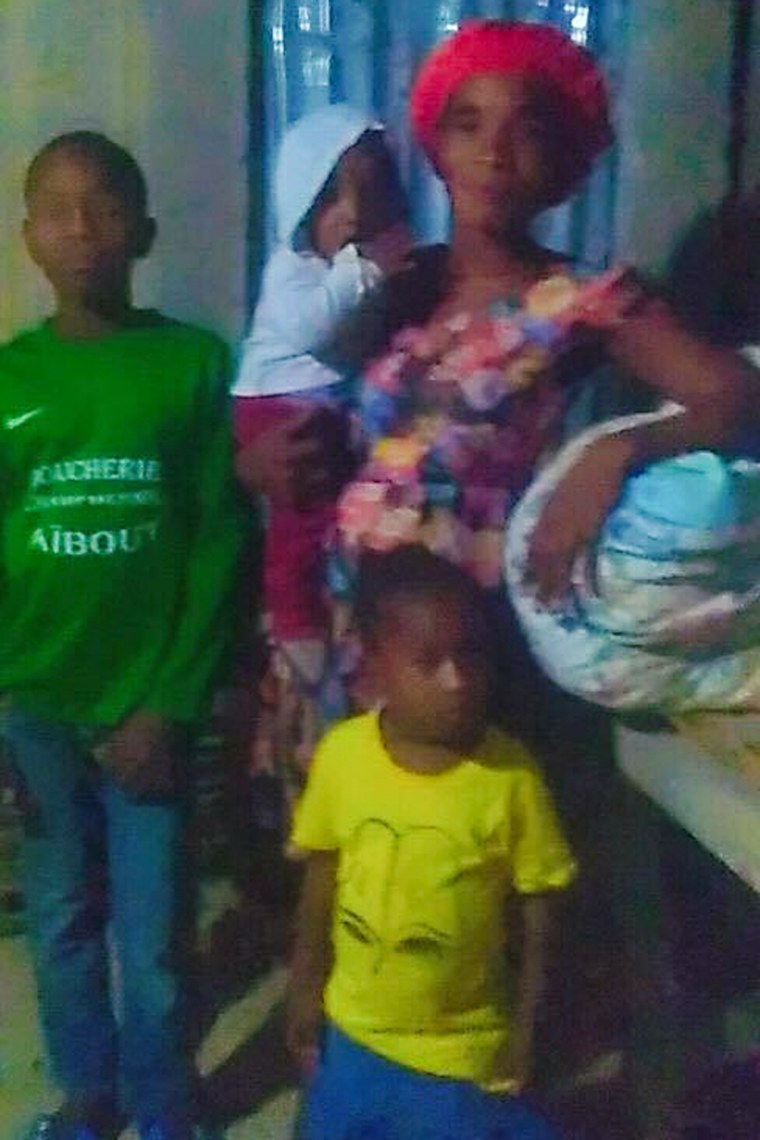A woman who fled her home in Port-au-Prince, Haiti, with her three young children says her family has been forced to move into a nearby church made of sheet metal because of the escalation of violence in the capital, where gangs have taken over about 80% of the streets.
“That’s where we sleep now,” Fabiola Luma, 35, said Monday by phone, referring to a small building, a church without a proper door. She described the constant sound of shootings, including incidents in which people were shot inside their own homes.
“Things were never good before,” Luma said, describing the deteriorating situation in her neighborhood, Bon Repos, where the church is also located. They’ve been in the Protestant church since January of last year. “Now, with the gangs, life is worse.”
According to a United Nations report, at least 15,000 people in Haiti’s capital were displaced in just one week because of rampant gang violence that erupted again on March 2, when more than 4,000 inmates escaped from prison under the command of gang leader Jimmy Chérizier.

Luma, who used to work as a house cleaner, said her employers left town over a year ago, leaving her without an income.
At the beginning of the gang violence in Port-au-Prince, she said, “people were running away, and I didn’t have any place to go.” Many residents have fled, but those who cannot afford to leave, like Luma, have remained.
Luma said life in Port-au-Prince has long been a battle for survival, as rival gangs fight one another and leave behind a trail of blood and despair. In Bon Repos, gunshots ring out daily, and the threat of violence looms large, she said.
“I can sit inside and hear gunshots being fired,” she said. “At night, when I sleep in the church, I can see the fire lights from the gunshots through the sheet metal.”
Luma recounted a terrifying incident in which she and her children were held at gunpoint in January of last year. She and her family were trying to leave for Mirebalais, about 40 miles north of Port-au-Prince, where a distant relative had a place for them to stay. But on the way, a gang member approached them and “shot two bullets over my head,” forcing them to return.
Luma’s life has been marred by hardship from a young age. Orphaned at 12 and with no family to turn to, she took work as a maid, barely surviving, often relying on strangers for food and shelter.
Now she is the sole provider for her 13-year-old son, Richecarde; her 5-year-old daughter, Ketcheïda; and her 1-year-old son, Twins. Her children have been unable to attend school for two years because, she said, she does not have money to send them.
“I am the one who is doing everything,” she said.
Richecarde described their living situation as “terrible.” He said he avoids playing outside because “the gangs are shooting in the neighborhood. They are walking with guns.”
“I can’t eat. I am barefoot. I can’t go to school. My mom doesn’t have money to buy me clothes,” he said.
The dire situation has left Luma and her children on the brink of starvation. With no stable income, they often go days without food.
“Sometimes, I would spend a week without eating,” she said.
Luma said she sometimes has to resort to desperate measures like mixing water with sugar to curb her children’s hunger.
“In the church, there’s no food. We can’t help each other,” Luma said. They are living there with another family, a mother and her eight children. “All my clothes are too big for me. I only have bones left in my body, because I don’t have food. Sometimes, I feel lightheaded. I always have a headache — it’s probably from malnourishment.”
Luma said her daughter’s health is deteriorating quickly.
“My daughter almost died, her stomach bloated, and doctors said she was malnourished and she lacked food,” Luma said.
The violence has left Luma and her children without basic supplies, like toothpaste or soap. “Sometimes, I brush their teeth with just water,” she said.
A lucky day for Luma is when she can buy a bar of soap to bathe her children. She continues to hide her children in the church to keep them away from gangs, she said. Not just for their safety, but to secure any future they may have.
“When kids are young and they have nothing going on, they get recruited to join gangs, they give them guns,” she said, noting that that is one of her worst fears.
For more from NBC BLK, sign up for our weekly newsletter.






